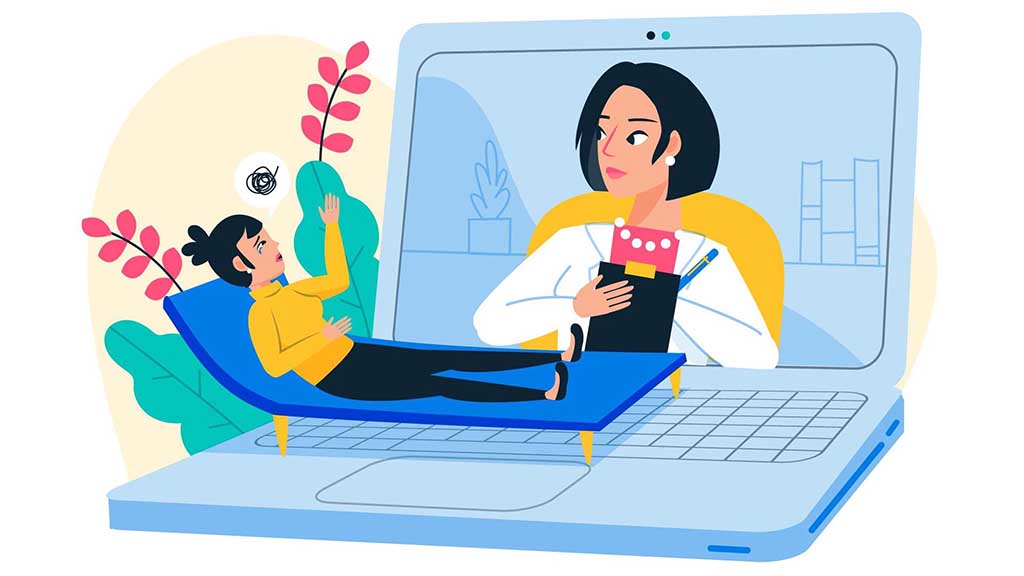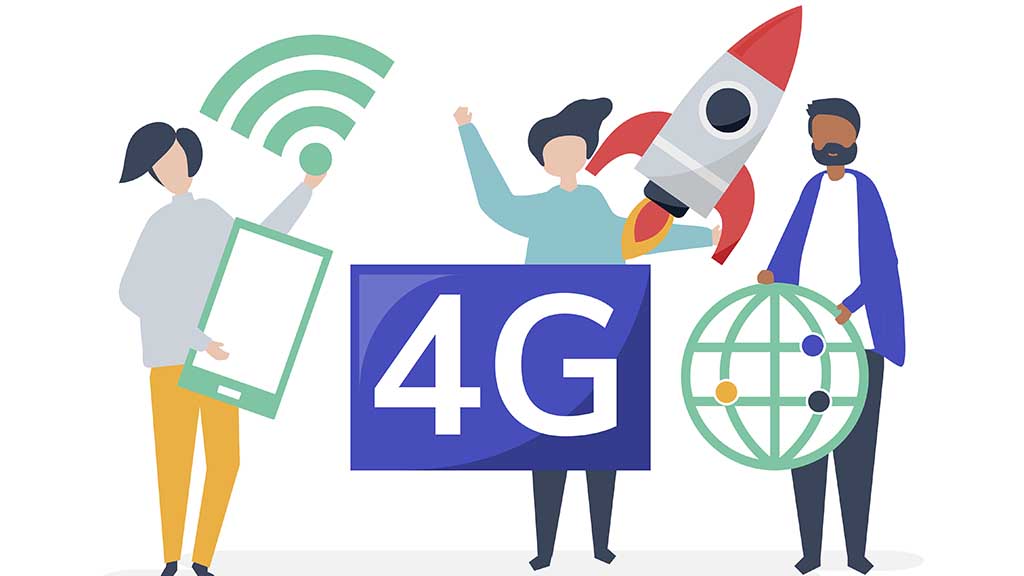Are you interested in seeing a therapist for counselling but for one reason or another, are unable to make face to face sessions? If so, then you may want to consider having them online instead.

The Arrival of Online Therapy
It wasn’t so long ago that the idea that we would be conducting online counselling sessions seemed like some sort of far-fetched, futuristic fantasy. Even when it became a possibility and some therapists such as myself began to see the occasional client online, this was considered to be highly unusual. In fact, when I’ve participated in workshops and the subject of online therapy has come up, it has often been met with a great deal of resistance from therapists who considered it too much of a deviation from the tried and trusted norm of meeting in person. With the advent of Covid-19, however, things have changed dramatically and most therapists are now working online.
The reality is that online therapy has slowly been gaining traction for some time now. According to statistics from explodingtopics.com, there has been an 82% increase in demand for online therapy in the past five years. Unsurprisingly, however, 33% of this growth has happened in the last six months and we have the Covid-19 to largely thank for this current state of affairs.
When the lockdowns arrived back in March this year, any therapist who was able to, including myself, moved their entire practice online. What became apparent very quickly, even to therapists who had never used this medium before, was that it actually worked very well.
In this article, I am going to present what I consider to be my top three reasons why you might like to consider online therapy sessions as an alternative to visiting a therapist in person.
Technological Progress and the Ever-Increasing Quality of Online Video Conferencing Apps
My first reason concerns the excellent quality of video conferencing platforms today. The reality is that the technology for offering online therapy sessions has been available for some time now including the necessary end to end encryption ensuring that conversations remain private and confidential.
I’ve been working online for a little over ten years now and can attest to the dramatic improvement in this respect. Back in the day, the only viable platform for working online was Skype and this could be a bit touch and go at times with frequent freezing of the screen and an assortment of strange and peculiar noises accompanying sessions.
So what’s changed since then? Well the answer is very simple. We’ve seen a dramatic increase in bandwidth. Verizon.com defines bandwidth as
“The maximum amount of data transmitted over an internet connection in a given amount of time.”
They go on to state that:
“Bandwidth is often mistaken for internet speed when it’s actually the volume of information that can be sent over a connection in a measured amount of time – calculated in megabits per second (Mbps).”
This increase in bandwidth enabling far faster internet connections along with dramatic improvements in the quality of the video conferencing platforms themselves is the primary reason that online therapy has taken off so dramatically since the lockdowns.
In addition to Skype, there are numerous new apps such as Zoom, Microsoft Teams, Facetime and even WhatsApp offering high quality video conferencing some of which offer secure end to end encryption.
These are just some of the better-known names in the business. There are, in fact, plenty of other platforms many of which brand themselves as “telemedicine” companies such as Vsee.com which is one of the apps I use and which provide high quality video conferencing with end to end encryption for doctors psychiatrists and counsellors.
What’s so good about all of this is that when the technology is working well, you don’t even really have to think about it during the session. With really good quality picture and audio, there is nothing to distract from the conversation which means that you will be able to really focus on what you’re discussing with your therapist.
Encryption is very important as well since it means you can speak to your therapist safe in the knowledge that what you are saying is private and confidential, just as it would be were you to be meeting with them face to face.
The Convenience of Online Therapy
Secondly, having therapy sessions online is generally a more convenient option than visiting a therapist in person for the obvious reason that you don’t have to spend any time getting to and from their place of work. Unless you see a therapist who is more or less just around the corner from where you live or work then you are likely to spend just as much time, if not more, on actually getting to their place of work than you do having your session.
There are many reasons why you may find it difficult to attend counselling sessions in person. If you live in a rural area, there may simply not be anyone close by who you can visit. In that case, having sessions online makes a great deal of sense.
Equally, you may live in a busy city but still not be able to attend sessions in person because it’s just not convenient. Perhaps you have children or are looking after an elderly parent and it’s not possible for you to slip out of the house for long enough to get to and from a therapist’s office.
So long as you have a room in your house which is quiet and where you won’t be interrupted, online sessions could potentially not just work for you, but be the difference between being able to see a therapist or not.
You can learn more about how to know whether online therapy is a suitable option for you and how to make sure the technology works well to ensure a positive online therapy experience by reading my article “ how to get the most out of your online therapy sessions” here.
Online Therapy Enables a Greater Choice of Therapists
Most of the people who come to see me in person, live within approx. five-mile radius of my office. This makes sense! Who, after all, wants to spend the best part of their day getting to and from their therapists office. It’s why Counselling Directory allows you to search for therapists based on geographical location including even postcode. If you want to see a therapist in person, you are limited, to a large extent, to visiting a therapist within your area. But what if you don’t want to see a local therapist or the person who was recommended to you lives a hundred miles away?
Until very recently, you would have had to make do with seeing a local therapist simply because there was no viable alternative. Now, with the advent of online therapy, you can touch base with a counsellor more or less anywhere in the country and there is a reasonable chance that they will be working online and therefore, may well be able to see you.
This means that your choice of therapist no longer has to be based on their proximity to you which means you have greater options. If you are seeking a therapist who has a particular expertise working with say anxiety issues, addiction, loss and bereavement or any other issue and there isn’t anyone suitable in your immediate area, you are now able to cast your net wider to find the person just right for you.
The Future of Online Therapy
These then, are my top three reasons why you might like to consider having your therapy sessions online. My prediction is that online therapy is here to stay and will only become more popular over time. Of course, we will continue to meet with clients in person so long as we are able to do so, but the obvious benefits which I have discussed in this article means that for most of us, working online will provide a powerful and effective alternative medium which for many people, perhaps even yourself, could be the difference between getting to actually have counselling sessions or not at all.
Richard Swynnerton is a psychotherapist and counsellor working online and from his practice in High Barnet, Hertfordshire. If you would like to speak with Richard about having therapy sessions either online or in person, then give him a call or complete the contact form below.





Leave A Comment